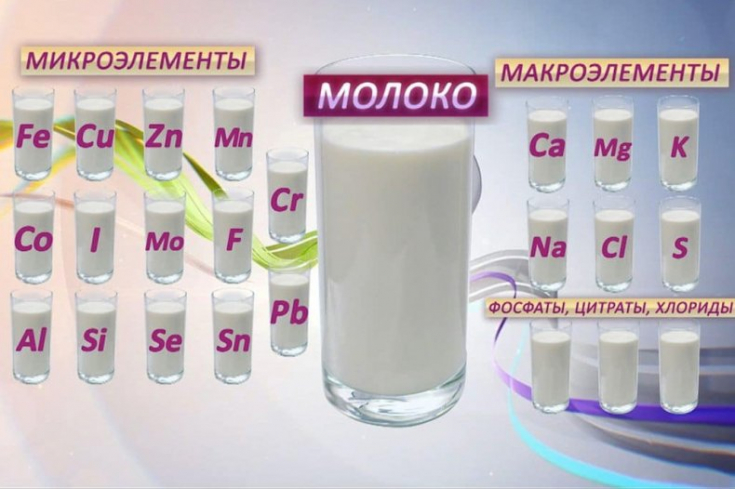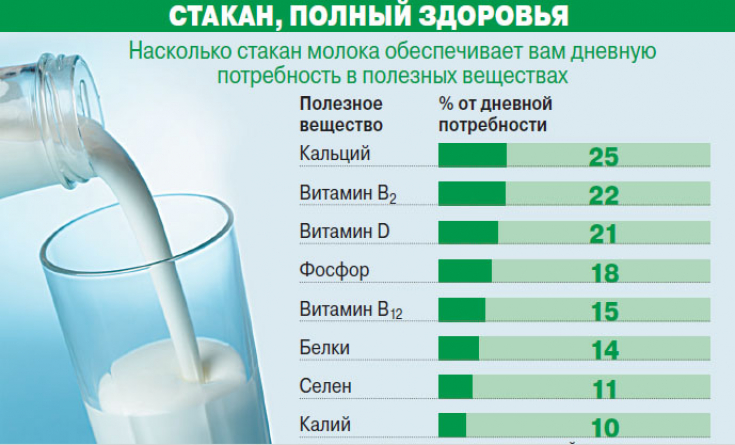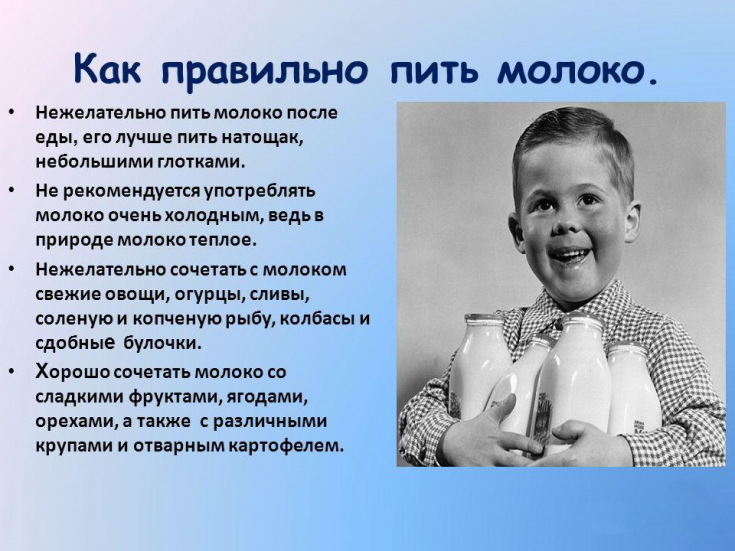"Drink milk, children, you will be healthy." Who has not heard this phrase. And if not children, but adults? And how will milk affect the female body and will it be useful? And if you drink, then how much? And research was conducted recently and it turned out that milk is full of hormones, that — will you get better from Stop! We deal with common, but such an ambiguous product as milk. Let's find out if the benefits of milk for women are real, and also debunk a few myths about this product.
- Why milk isn't only for small children
- Benefits of milk for women at different ages
- 5 milk myths that don't drink
Why milk isn't only for small children
It should be noted right away that the article will focus on cow milk as the most popular and in-demand. Goat, sheep, camel, as well as almond and coconut will not be considered, few people introduce them into their diet on an ongoing basis. Whereas the question "to drink or not to drink cow's milk?" many are asked. And not surprisingly, serious passions have been raging around this product lately.
So, many people think that adults do not have an enzyme (lactase) that breaks down milk sugar, which means milk is harmful for them. Indeed, ancient people did not drink milk in adulthood, and after weaning from the breast, their body stopped producing lactase. But agriculture developed, dairy products were included in the diet, and gradually there was a mutation in the genes, thanks to which we can drink milk at any age. And not only drink, but and completely assimilate all the trace elements present in

You can't say that milk — vital product. And if for some reason you don drink it, it will not be detrimental to health. Nevertheless, it is useful, it is a source of protein, vitamins and minerals necessary for both health and beauty. In addition, from milk you can cook a lot of tasty and healthy dishes, and if you take fat-free, then and low-calorie. Delicious, healthy, affordable — Why deny yourself such a good product from all sides? Consider the positive properties of milk in more detail.
Read also: Plant milk: can replace cow's milk
Benefits of milk for women at different ages
Up to 10 13 years children have a period of active growth, during which their organism needs calcium and vitamin D more than an adult. The lack of these elements has a variety of manifestations, from allergies to changes in behavior. It is worth including dairy products in the girls' diet at least in order to prevent such long-term consequences as posture disorders, flat feet, malocclusion due to bad teeth.
The benefits of milk for women who are waiting for the birth of a baby are undeniable. Pregnancy — the very period when most of the calcium supplied with food is redistributed in favor of the child. The female body gets the residual principle, so you need to try to fill the diet with dairy products. In addition, many girls noted that only with milk they managed to "calm down" pregnancy heartburn.

Another period in a woman's life when you need to especially carefully monitor diet — premenopausal. Yes, osteoporosis develops after menopause, but you can only prevent it if you prepare in advance. When the bones have already become brittle, it will be very difficult to increase their density, but it’s impossible. Therefore, already after 40 years, you need to gradually introduce more calcium-containing foods into your diet, including dairy products.
The benefits of milk for women are not limited to "supplying" calcium in the body. It also contains fatty acids that are essential for building collagen fibers and creating a protective barrier. Their deficiency is immediately manifested by dryness and irritation of the skin. In addition, masks are prepared on the basis of milk, which have a slight whitening effect and even out the skin relief. In general, milk "works" both from the inside and outside, making us more beautiful and healthier. So why he is so wary?
Read also: Which foods have the most calcium: top 9 super-usefulness
5 myths about milk that would don't drink it
Milk has been consumed as food since old times. Its composition has been studied in detail, the presence of beneficial vitamins and minerals has been confirmed. It is delicious and you can make a lot of dishes out of it, ranging from soups and ending with desserts. But the dairy industry has been criticized and attacked in recent years, which is why many refuse milk altogether. Let's dispel the most popular myths.
Myth 1. The milk is full of antibiotics used to treat cows
Sick cows are indeed treated with antibiotics. But during an illness and for some time after it, all milk produced is poured out. It may contain not only antibiotics, but also pathogens, so no manufacturer will risk his reputation like that. It's not worth the profit from milking one or two sick cows. In addition, the factories that receive milk regularly carry out tests for the presence of foreign substances in raw materials.
Myth 2. There is nothing useful in store-bought milk
Mostly supermarkets sell UHT milk that can be stored for several months. Processing technology — the most gentle and & nbsp; effective. The milk is heated to high temperatures (up to 137 °C), and after 2-4 seconds it is quickly cooled. This way it is possible to get rid of bacteria and pathogenic microorganisms, at the same time protein, calcium and microelements do not have time to break down.
Myth 3. Milk is harmful and provokes cancer
Most recently, casein — a milk protein that allegedly causes cancer of the endometrium, breast, and certain other tissues and organs. Yes, according to research, the risk of developing tumors is higher, the more animal protein is consumed in food. Any, and not only dairy. Therefore, the correct output — everything in moderation.
Myth 4. There are hormones in milk, they can contribute to weight gain
Yes, there are hormones in milk, which is not surprising, given that it comes from a pregnant or recently calved cow. But their concentration in the milk that we drink is so small that it cannot affect our hormonal levels. Growth hormones that are added to increase milk yield do not affect human health, which has been confirmed by various studies.
Myth 5. Milk retains fluid in the body
This myth is actively promoted by nutritionists and various nutrition gurus. Allegedly, dairy products cause edema by retaining water in the body. Milk protein can retain water, but only if the body lacks potassium or sodium, which normally should perform this function. If these minerals are enough, then if you don sit salt-free diet, milk will not affect water exchange in the body.
It is difficult to explain why milk and lactic acid products, which have been eaten for centuries, are now the object of criticism. Perhaps this is the pressure of environmentalists, vegetarians and vegans, calling to come to the side of goodness to refuse animal products. And maybe the whole thing is the constant search for hype, for which you can not declare milk and water a deadly carcinogen.

Truth, as usual, is simple and banal. The benefits of milk for women, men and children are scientifically proven, of course, subject to moderate consumption. Eat more vegetables and fruits, ditch processed meats and sweets, move more, and a couple of glasses of milk a day will be a great addition to your diet.
Read also: How a woman should eat right to gain health and a beautiful figure
You might be interested in: Abs Workouts.






Add a comment